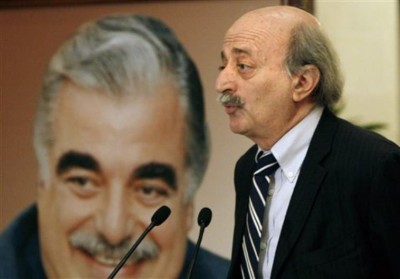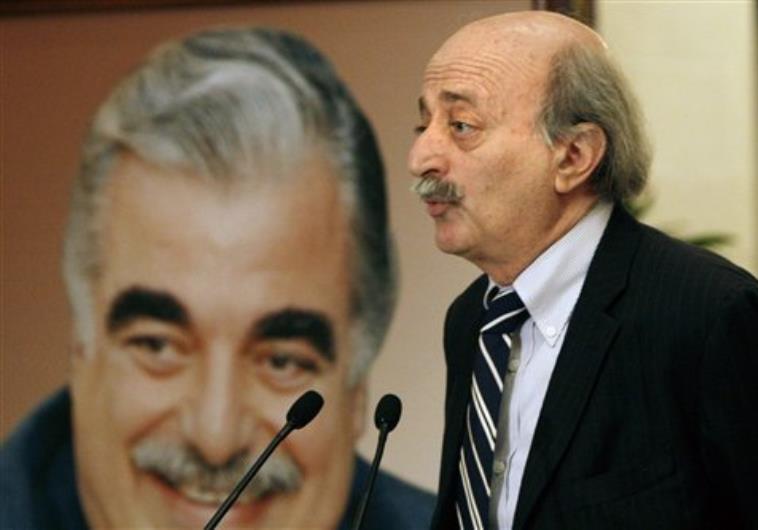
He told the trial chamber: “Bashar Assad showed hostility towards Rafik Hariri before he was elected president.”
Jumblatt said that he had met Assad twice prior to his election as Syrian president in 2000.
He noted his animosity towards Hariri during the second meeting, which was held in Damascus in 1999.
“It was not a comfortable meeting and he focused his questions on Hariri. Evidence of his hostility towards him was clear in this meeting,” revealed Jumblatt.
On Assad, he stated: “Sometimes, you can understand a person simply from a single meeting. I became aware that we in Lebanon would be faced with a hurdle with the arrival as Assad as president.”
Commenting on his first meeting with Assad, Jumblatt recalled that it was held in Lebanon and attended by then head of Syrian Intelligence in Lebanon Ghazi Kanaan.
“The meeting was an introductory one and we talked about silly matters,” noted Jumblatt.
“Kanaan told me after the meeting however that ‘I should be aware of who the Assad family is.’ I did not make much of this comment at the time, but I recalled it a few years later with the forced suicide of Kanaan” in 2005, continued the PSP leader.
Speculation surrounded the Syrian official’s death, with some claiming that he was in fact killed by the Syrian regime due to information he possessed over Hariri’s 2005 assassination.
Addressing the election of Emile Lahoud as president, Jumblatt revealed that he, along with Hariri and then President Elias Hrawi, sought in 1995 to delay his election due to his close ties with the Syrian regime.
Lahoud was elected president in 1998.
Jumblat said that he succeeded in delaying his election “in complicity with Hariri, Hrawi, former Syrian Vice President Abdul Halim Khaddam, and late Syrian Chief of Staff Hikmat al-Shehabi.”
The MP told the court that he opposed Lahoud’s election as president because of his military background and “complete affiliation with the Syrian regime.”
“The president and prime minister in Lebanon had no control over the Lebanese army, which was under the command of Lahoud. The army answered to Syria,” he said.
“We wanted a president who had some room to maneuver in order to implement the Taef Accord,” he added.
“Hafez and Bashar Assad were friends with Lahoud and we sensed that the security grip over Lebanon was tightening,” remarked the MP.
“Ties with Syria were aimed at confronting the Israeli threat and implementing the Taef Accord. I sought with Hariri and Hrawi to allow Lebanon to control its fate, but the Syrian security apparatus thwarted our efforts,” Jumblatt stated.
“In 1998, a Syrian order was made to elect Lahoud as president. Lebanese officials were summoned to the headquarters of the Syrian intelligence in Lebanon where they were ordered to fulfill their demands. Very few people had the courage to oppose them,” he explained.
“The implementation of the will of the Syrian president is done through the Syrian security apparatus in Lebanon and the Lebanese security agencies that were affiliated to it,” he added.
Hariri was killed in a massive bombing in Beirut on February 14, 2005.
The STL was set up to examine the assassination.
Five Hezbollah members have so far been indicted.
The tribunal kicked off its proceedings in 2014, listening to various witness accounts, including those of prominent lawmakers and journalists.
The political testimonies are focusing on Hariri’s ties with the Syrian leadership and the influence the Syrian regime wielded over Lebanon.
Naharnet


Leave a Reply
You must be logged in to post a comment.